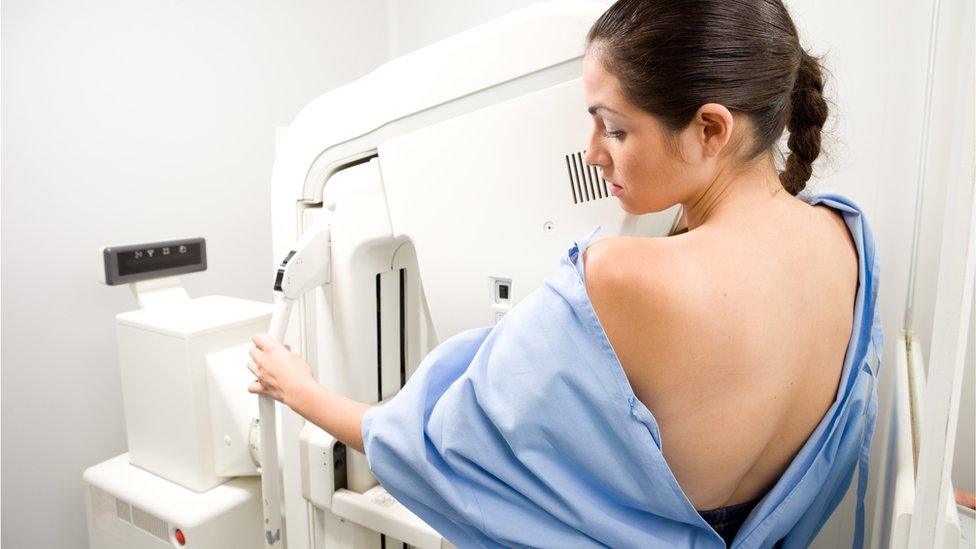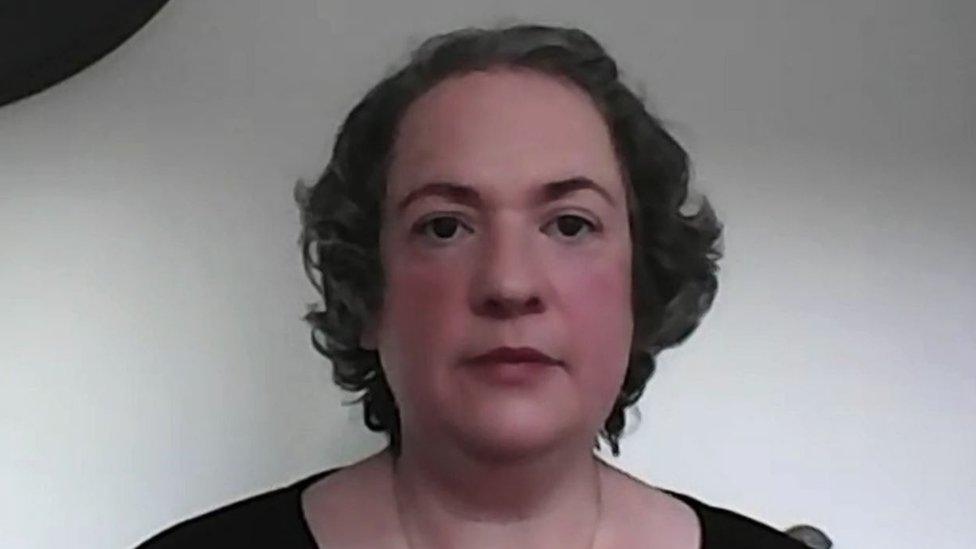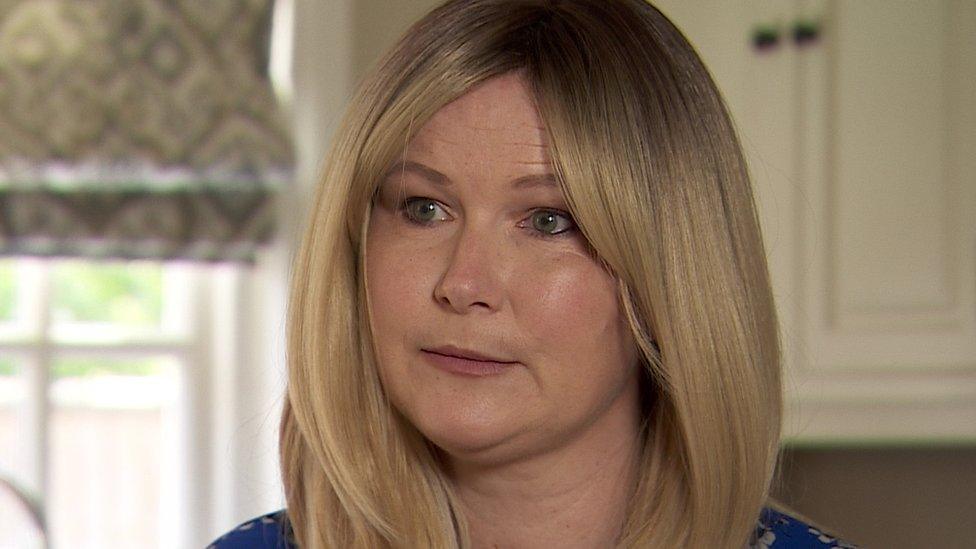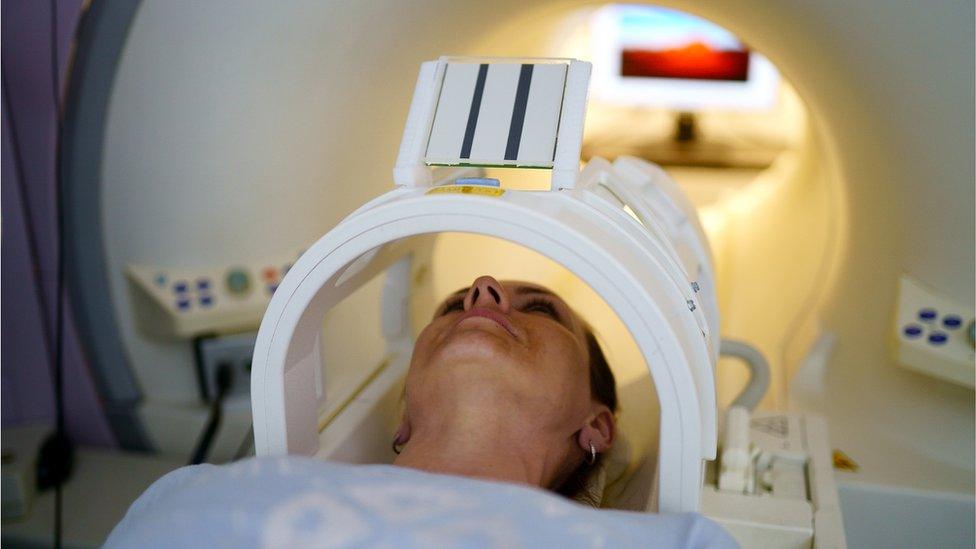Covid-19: QUB asks breast cancer patients about experiences
- Published

Researchers will analyse data from more than 2,000 people
The impact of the Covid-19 pandemic on the diagnosis and treatment of breast cancer patients in Northern Ireland will be examined through a new research project at Queen's University Belfast.
Patients will be asked to share their experience of the pandemic with a team of scientists.
The charity Breast Cancer Now has awarded £229,000 to the university for the project.
Researchers will analyse the data of more than 2,000 people.
They will compare the experiences of those who were diagnosed with breast cancer between April and December 2020, when the first lockdowns were imposed, with those diagnosed in 2018, which was the last full year in which patients will have completed their treatment before the pandemic.
They will examine whether there are differences in how quickly they were diagnosed, how advanced the cancer was and the type of treatment they received.
Women and men living with breast cancer during the pandemic from across the UK and Ireland will also be invited to take part in an online survey in 2023.
Breast cancer screening programmes in Northern Ireland, as well as England, Scotland and Wales, were suspended for several months in 2020 and operated at a reduced capacity when they re-opened.
The most recent cancer waiting times data for Northern Ireland showed that key targets around the diagnosis and treatment of breast cancer were still being missed as clinical services recovered.
In June 2022, 58% of people with an urgent GP referral for suspected breast cancer saw a specialist within two weeks - a target that should be met by all patients.
In the same period, 83% of people started breast cancer treatment within 62 days of referral - compared with a target of 95%.
'Alone and helpless'
Yvonne Doran, from Londonderry, was diagnosed with grade three aggressive breast cancer when she was 26 weeks pregnant in the summer of 2020.
When she was told about her diagnosis, she had attended the appointment alone due to the Covid-19 restrictions.
"I just remember feeling so alone and so helpless and having nobody there to comfort me," she said.

Yvonne Doran said she felt alone and helpless going through treatment during the pandemic
Ms Doran explained she had initially been hesitant to contact her GP because of the pandemic after feeling a lump in her left breast.
She said she wished she had someone with her at appointments to provide comfort and say "everything is going to be ok".
The research, she said, would help to tell the story of other patients.
"As a cancer patient I think it is particularly important that our voices are heard and that our experiences are heard, whether they be positive or negative, which is why I think this research being done by Breast Cancer Now is so important," she said.
"I had to have a lot of my antenatal care and cancer treatment alone which was very upsetting at times, but I know that I was more fortunate than some women who had their diagnosis delayed, or treatment interrupted."
Prof Anna Gavin, who will lead the research, said it would highlight the unique challenges specifically faced by thousands of breast cancer patients in Northern Ireland during the pandemic.
"It's vital we understand the longer-term impact of the service disruption on people with breast cancer so positive changes can be made for the future," she said.
Related topics
- Published30 June 2022

- Published5 January 2022
